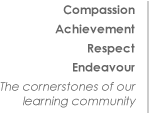

Year 12 English Literature students visit the Imperial War Museum
As part of the Year 12 English Literature course on the First World War, a group of students attended the Imperial War Museum, London on the 11th of November. We arrived, wearing our poppies, moments before the two minutes silence that marked the signing of the Armistice exactly ninety years previously. The exhibition we had come to see, simply entitled ‘In Memoriam’, was created to commemorate the ninetieth anniversary of the Armistice and consisted of a series of display cases containing personal stories. These snapshots contained artefacts and tales of the men and women who lived through the conflict and each brought the Great War a little closer to home. With each display case almost a bite-size exhibition in itself, this made a fitting change from other exhibitions that systemise history and remove emotion. Here, the focus was on remembrance and lives, leaving each of us reflective.Having seen objects and documents connected to some of the poets we study at A-Level in the morning, our afternoon session moved on to our course. Split into two groups, we spent time with two actors, one playing a British ‘Tommy’, the other a nurse behind the front lines. As with the ‘In Memoriam’ exhibition, this session veered away from the stereotype of war by looking less at the deaths and more at the horrific injuries suffered by soldiers on all sides, from gas to shrapnel wounds. Our nurse explained how infection had become their worst enemy in this war, due to the number of wounded, the mud and the fertilisers used by peace-time farmers. With what we had learnt in mind, we separated into smaller groups to examine and discuss historical artefacts including shrapnel, helmets, postcards and a document showing the meagre sums paid out to soldiers who had lost various limbs. We selected the most poignant of these items and used them as starting points to discus Wilfred Owen’s poem ‘Disabled’ – a dark prediction of what would happen to those who, though they were not killed, had nevertheless lost their livelihoods through amputations and wounds. Sadly, Wilfred Owen did not survive to see society accept these men and help them reintegrate. However, the poppy endures as a reminder of this tolerance; the poppies were first, and still are, produced to help disabled soldiers. Overall, the trip provided a fascinating insight into the war and the background knowledge gained from the trip will be invaluable to the A-Level course.By I. Darvill, Year 12

